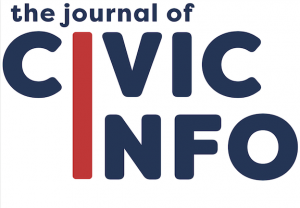In the New Journal of Civic Information: Defending Against “Reverse FOIA” Lawsuits, and Obtaining State Legislators’ Records
Is the public entitled to request documents kept by state legislators? Can a requester be sued by the government just for filing a freedom-of-information request — and is there a way to get such harassing litigation easily dismissed without spending a fortune on legal fees?
The newly published second issue of the Brechner Center’s Journal of Civic Information tackles these topics, providing guidance for news organizations and their lawyers about contemporary issues involving access to government documents and data.
This quarter’s articles include:
- A deep dive into “anti-SLAPP” laws by University of Nevada-Reno researchers Patrick C. File and Leah Wigren. Their article looks at the troubling tactic of “preemptive strike” lawsuits by government agencies against FOI requesters. Agencies sometimes claim to be seeking judicial clarification when they’re uncertain whether a document is or is not a public record, but the real purpose of these man-bites-dog lawsuits is to inflict pain and expense on requesters to discourage future requests. File and Wigren examine the 31 state “anti-SLAPP” statutes to see whether a requester who is wrongfully targeted by an agency’s harassing lawsuit can obtain expedited dismissal on the grounds that the lawsuit is a “SLAPP,” a/k/a a “Strategic Lawsuit Against Public Participation.”
- A survey of how state FOI statutes and judicial interpretations afford the public surprising access to legislative records in a majority of states. Authors Ryan Mulvey and James Valvo of the nonprofit Cause of Action Institute conclude that, contrary to widespread believe that legislatures have exempted themselves from disclosing public records, in fact legislative documents should be accessible in at least 38 states. (The article is accompanied by a 50-state chart enabling requesters to easily find citeable legal authority.)
- Rutgers University doctoral student Kayla Schwoerer examined Twitter activity immediately before and during the observance of “Sunshine Week” in March 2019, to show how advocacy organizations successfully used hashtagged posts relating to freedom-of-information to create online dialogue in connection with the annual awareness event. The article (Individuals’ Use of Twitter to Discuss Freedom of Information in the United States: A Social Network Analysis) provides guidance on how advocates can successfully create conversation with the public on Twitter.

The Journal is a peer-reviewed, open-access quarterly that welcomes submissions across a broad range of disciplines. The Journal is published under a Creative Commons license (CC BY-NC, Attribution NonCommercial 4.0 International) so that articles may, with proper attribution, be republished.
The submission window is open for 2020 editions of the Journal, and manuscripts are reviewed on a rolling basis. Instructions on how to submit are here on the Journal’s website.
Subscribe for free quarterly updates from the Journal of Civic Information here.
Posted: December 18, 2019
Category: Brechner News
Tagged as: Journal of Civic Information, legislative records, SLAPP, Sunshine Week



